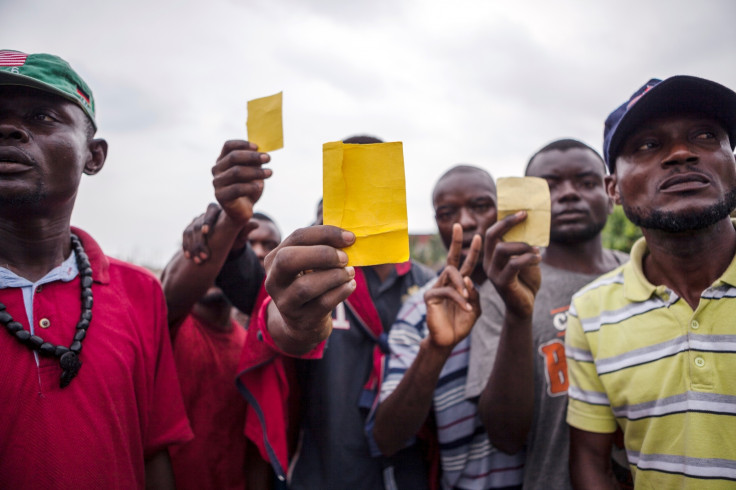DRC President Kabila 'will not do anything that is unconstitutional', says top adviser
As Kabila's final term expires today, adviser Michael Sakombi claims he will 'respect the Constitution'.
A senior adviser to the Democratic Republic of Congo (DRC)'s President Joseph Kabila has said that the head of state will "not do anything that is unconstitutional"
Tensions are running high in Africa's largest copper producer. The Congolese president is due to stand down today at midnight (19 December) as his second and final term has entered the home stretch, but he has been accused of political manoeuvring to ensure he can remain in power indefinitely, and there are growing fears Kabila's push to cling to power will spark major violence.
In an inclusive dialogue with the opposition, Kabila has been asked to confirm he will step down tonight and will not run for another term.
"The opposition wants the President to say he will not run for a third mandate, but that is already stipulated in the constitution. He only had two terms, and the last one is almost over, and he has said so in the State of the Nation speech, when he clearly said he would respect the constitution, and will not do anything that is unconstitutional," an official from Kabila's camp told IBTimes UK in an exclusive interview.
Michael Sakombi, Special Deputy Commissioner for the Economy, Finance and Development, who is participating in the national dialogue, said the Presidential Majority was keen on finding common ground in the hope of reaching an agreement with the opposition. However, he explained, both sides are failing to agree on the the impact of the court ruling.
"The problem here is an institutional one: They say that on Monday 19 December, President Kabila will no longer be a president, but we say he will because we've had the High Court ruling. Everybody knows he cannot get out of that," Sakombi explained. "He is trying to show a unity figure right now."
Presidential elections were scheduled for November 2016 but will not now take place until April 2018 for logistical reasons, until when a court ruling earlier stated that Kabila should stay on in a move critics claim to be violation of the Constitution.
What does the law say?
The second part of Article 70 of the constitution states that the president remains in power until the successor has been sworn in. Article 73 states that the ballot for the election of the president must scheduled by the electoral commission 90 days before the end of the term of the president.
Presidential elections should have been held in November 2016. Kabila would have then stayed in power until the new president is sworn in.

"If the constitution was respected, this is how things would have been," says Michael Tshibangu, a lawyer and president of UK-based Alliance for Development and Democracy in Congo (ADDC). "Obviously, the Constitution in DRC has not been respected, the deadline set by Article 73 (90 days) hasn't been respected. DRC is in a situation not foreseen by the constitution."
The Constitutional Court was asked to interpret article 70 in May 2016 but, in its ruling, said that in order to avoid a power vacuum, Kabila could remain in power until a new president is elected. As it is the highest court, there are no other legal recourse.
"The Court that is supposed to uphold the law has interpreted the law in such a way that allows him to stay beyond his term. It is worth noting that the Constitutional Court is perceived as biased, Pro-Kabila", Tshibangu told IBTimes UK. "One can reasonably wonder whether they have interpreted the law or simply added to the law something that wasn't there as the constitution doesn't deal, foresee a situation where elections are not held on time."
According to the lawyer, Kabila is relying on the interpretation of the Constitutional Court, "so for him staying beyond 19 December is constitutional. "The problem in DRC is that all the institutions are controlled by Kabila , the government, parliament and the judiciary."
What is the UK government's position?
"We remain hopeful that the dialogue will reach an agreement in time to avert unrest in Kinshasa. We are encouraging both sides to show flexibility, but especially the DRC government as they bear primary responsibility for the current situation," a spokeswoman for the Foreign and Commonwealth Office, told IBTimes UK in a first reaction to the impasse.
"We are working closely with our EU partners and with our colleagues in the UN Security Council, including the United States, on the current situation in the DRC. The Council issued a strong statement on 6 December, demonstrating the high level of concern throughout the international community.
"The UK fully supports the efforts of Maman Sidikou in preparing Monusco (United Nations peacekeeping mission) for the upcoming period of heightened tension. Primary responsibility for the protection of civilians rests with the DRC government and we urge the security services to take a measured and proportionate response to demonstrations that respects citizens' right to peaceful political protest."
© Copyright IBTimes 2025. All rights reserved.






















